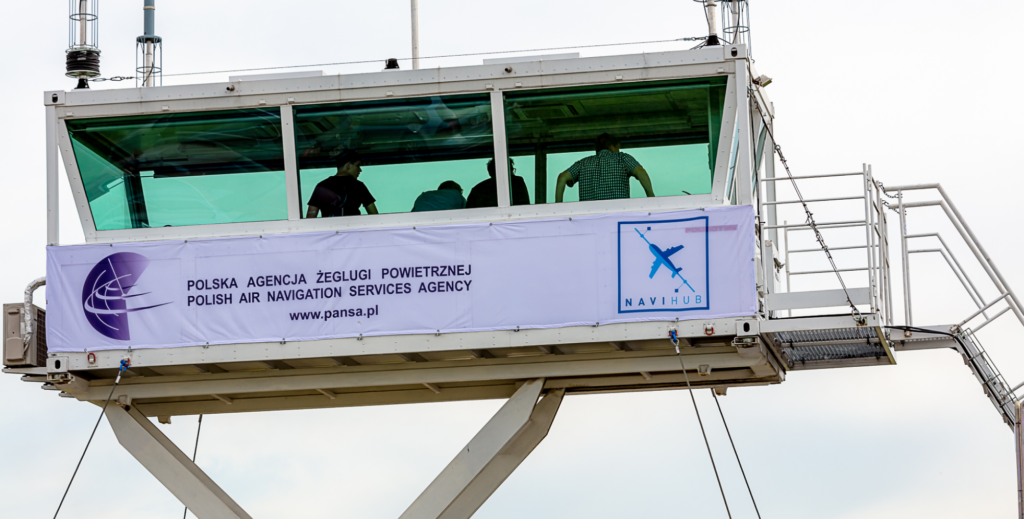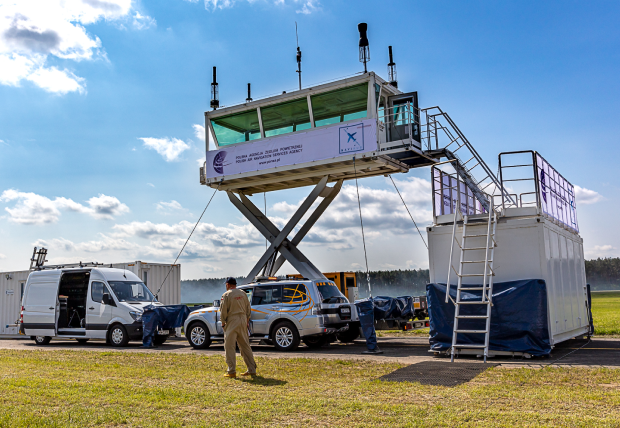Representatives from three institutions – the Polish Air Navigation Services Agency (PANSA), the Poznań Supercomputing and Networking Center (PSNC), and Poznań University of Technology (PUT) – presented the NAVIHUB project, aimed at developing modern aviation in Poland.

This platform will combine the knowledge, competencies, and experiences of institutes, universities, companies, and aviation facilities to create and test modern solutions for air navigation, which will be implemented at both existing and planned airports in Poland.
The NAVIHUB project utilizes the experimental space at the Kąkolewo airport, which is already connected
to the PIONIER scientific network. This allows for the use of advanced computing and visualization infrastructure from PSNC. Poland is a leader in preparing the U-Space environment among the member states of the Single European Sky (SES) initiative, and the world will face a revolution in public transport over the next five years. PANSA is planning the NAVISPOT and NAVILAB projects, which will create safety and infrastructure conditions (airport and laboratories) for the development of a new branch of the economy, positioning Poland among the leaders in the global drone market.

As part of the educational aspect of the project, Poznań University of Technology and PANSA signed a letter of intent to launch dual-degree programs in air traffic management. In October 2021, a new academic program was launched to train specialists in this field, using innovative technical and technological solutions in the areas of air navigation services, airspace management, and unmanned systems management.
The NAVIHUB project aims to develop modern aviation in Poland, which is crucial in the context of the upcoming revolution in public transport. To achieve this, the partners are combining their competencies, experience, and infrastructure to create forward-looking solutions.